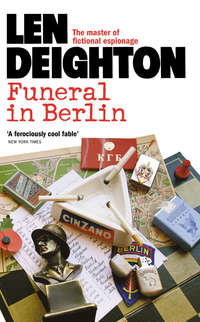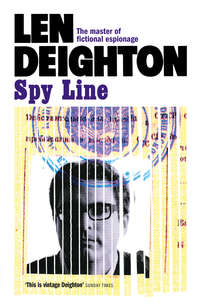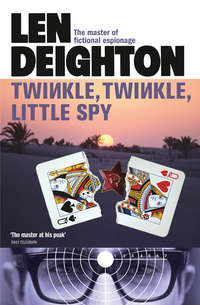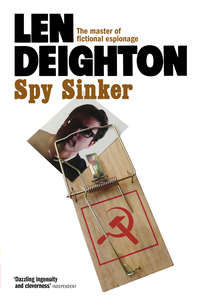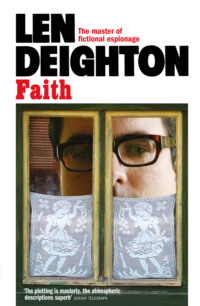
Полная версия
Mexico Set
‘I didn’t come on this trip to discuss Fiona,’ I said.
‘Don’t keep bickering,’ said Dicky. ‘Let’s go and talk to your friend Werner and get it finished. I can’t wait to be out of this filthy hell-hole. January or February; that’s the time when people who know what’s what go to Mexico. Not in the middle of the rainy season.’
Dicky opened the door of the car and I slid across the seat to get out his side. ‘Prohibido aparcar,’ said the security guard, and with arms folded he planted himself in our path.
‘What’s that?’ said Dicky, and the man said it again. Dicky smiled and explained, in his schoolboy Spanish, that we were residents of the hotel, we would only be leaving the car there for half an hour, and we were engaged on very important business.
‘Prohibido aparcar,’ said the guard stolidly
‘Give him some money, Dicky,’ I said. ‘That’s all he wants.’
The security guard looked from Dicky to me and stroked his large black moustache with the ball of his thumb. He was a big man, as tall as Dicky and twice as wide.
‘I’m not going to give him anything,’ said Dicky. ‘I’m not going to pay twice.’
‘Let me do it,’ I said. ‘I’ve got small money here.’
‘Stay out of this,’ said Dicky. ‘You’ve got to know how to handle these people.’ He stared at the guard. ‘Nada! Nada! Nada! Entiende?’
The guard looked down at our Chevrolet and then plucked the wiper between finger and thumb and let it fall back against the glass with a thump. ‘He’ll wreck the car,’ I said. ‘This is not the time to get into a hassle you can’t win.’
‘I’m not frightened of him,’ said Dicky.
‘I know you’re not, but I am.’ I got in front of him before he took a swing at the guard. There was a hard, almost vicious, streak under Dicky’s superficial charm, and he was a keen member of the Foreign Office judo club. Dicky wasn’t frightened of anything; that’s why I didn’t like working with him. I folded some paper money into the guard’s ready hand and pushed Dicky towards the sign that said ‘Elevator to hotel lobby’. The guard watched us go, his face still without emotion. Dicky wasn’t pleased either. He thought I’d tried to protect him against the guard and he felt belittled by my interference.
The hotel lobby was that same ubiquitous combination of tinted mirror, plastic marble and spongy carpet underlay that international travellers are reputed to admire. We sat down under a huge display of plastic flowers and looked at the fountain.
‘Machismo,’ said Dicky sadly. We were waiting for the top-hatted hotel doorman to find a taxi driver who would take us to Werner’s apartment. ‘Machismo,’ he said again reflectively. ‘Every last one of them is obsessed by it. It’s why you can’t get anything done here. I’m going to report that bastard downstairs to the manager.’
‘Wait until after we’ve collected the car,’ I advised.
‘At least the embassy sent a Counsellor to meet us. That means that London has told them to give us full diplomatic back-up.’
‘Or it means Mexico City embassy staff – including your pal Tiptree – have a lot of time on their hands.’
Dicky looked up from counting his traveller’s cheques. ‘What do I have to do, Bernard, to make you remember it’s Mexico? Not Mexico City; Mexico.’
2
This was a new Werner Volkmann. This was not the introverted Jewish orphan I’d been at school with, nor the lugubrious teenager I’d grown up with in Berlin, nor the affluent, overweight banker who was welcome on both sides of the Wall. This new Werner was a tough, muscular figure in short-sleeved cotton shirt and well-fitting Madras trousers. His big droopy moustache had been trimmed and so had his bushy black hair. Being on holiday with his twenty-two-year-old wife had rejuvenated him.
He was standing on the sixth-floor balcony of a small block of luxury apartments in downtown Mexico City. From here was a view across this immense city, with the mountains a dark backdrop. The dying sun was turning the world pink, now that the stormclouds had passed over. Long ragged strips of orange and gold cloud were torn across the sky, like a poster advertising a smog-reddened sun ripped by a passing vandal.
The balcony was large enough to hold a lot of expensive white garden furniture as well as big pots of tropical flowers. Green leafy plants climbed overhead to provide shade, while a collection of cacti were arrayed on shelves like books. Werner poured a pink concoction from a glass jug. It was like a watery fruit salad, the sort of thing they pressed on you at parties where no one got drunk. It didn’t look tempting, but I was hot and I took one gratefully.
Dicky Cruyer was flushed; his cowboy shirt bore dark patches of sweat. He had his blue-denim jacket slung over his shoulder. He tossed it on to a chair and reached out to take a drink from Werner.
Werner’s wife Zena held out her glass for a refill. She was full-length on a reclining chair. She was wearing a sheer, rainbow-striped dress through which her suntanned limbs shone darkly. As she moved to sip her drink, German fashion magazines, balanced on her belly, slid to the ground and flapped open. Zena cursed softly. It was the strange, flat-accented speech of eastern lands that were no longer German. It was probably the only thing she’d inherited from her impoverished parents, and I had the feeling she would sometimes have been happier without it.
‘What’s in this drink?’ I said.
Werner recovered the magazines from the floor and gave them to his wife. In business he could be tough, in friendships outspoken, but to Zena he was always indulgent.
Werner raised money from Western banks to pay exporters to East Germany, and then eventually collected the money from the East German government, taking a tiny percentage on every deal. ‘Avalizing’ it was called. But it wasn’t a banker’s business; it was a free-for-all in which many got their fingers burned. Werner had to be tough to survive.
‘In the drink? Fruit juices,’ said Werner. ‘It’s too early for alcohol in this sort of climate.’
‘Not for me it isn’t,’ I said. Werner smiled but he didn’t go anywhere to get me a proper drink. He was my oldest and closest friend; the sort of close friend who gives you the excoriating criticism that new enemies hesitate about. Zena didn’t look up; she was still pretending to read her magazines.
Dicky had stepped into the jungle of flowers to get a clearer view of the city. I looked over his shoulder to see the traffic still moving sluggishly. In the street below there were flashing red lights and sirens as two police cars mounted the pavement to get around the traffic. In a city of fifteen million people there is said to be a crime committed every two minutes. The noise of the streets never ceased. As the flow of homegoing office workers ended, the influx of people to the Zona Rosa’s restaurants and cinemas began. ‘What a madhouse,’ said Dicky.
A malevolent-looking black cat awoke and jumped softly down from its position on the footstool. It went over to Dicky and sank a claw into his leg and looked up at him to see how he’d take it. ‘Hell!’ shouted Dicky. ‘Get away, you brute.’ Dicky aimed a blow at the cat but missed. The cat moved very fast as if it had done the same thing before to other gringos.
Wincing with pain and rubbing his leg, Dicky moved well away from the cat and went to the other end of the balcony to look inside the large lounge with its locally made tiles, old masks and Mexican textiles. It looked like an arts and crafts shop, but obviously a lot of money had been spent getting it that way. ‘Nice place you’ve got here,’ said Dicky. There was more than a hint of sarcasm in his remark. It was not Dicky’s style. Anything that departed much from Harrod’s furniture department was too foreign for him.
‘It belongs to Zena’s uncle and aunt,’ explained Werner. ‘We’re taking care of it while they’re in Europe.’ That explained the notebook I’d seen near the telephone. Zena had neatly entered ‘wine glass’, ‘tumbler’, ‘wine glass’, ‘small china bowl with blue flowers’. It was a list of breakages, an example of Zena’s sense of order and rectitude.
‘You chose a bad time of year,’ complained Dicky. ‘Or rather Zena’s uncle chose a good one.’ He drained the glass, tipping it up until the ice cubes, cucumber and pieces of lemon slid down the glass and rested against his lips.
‘Zena doesn’t mind it,’ said Werner, as if his own opinions were of no importance.
Zena, still concentrating on her magazine, said, ‘I love the sun.’ She said it twice and continued to read without losing her place.
‘If only it would rain,’ said Werner. ‘It’s this build-up to the storms that makes it so unbearable.’
‘So you saw this chap Stinnes?’ said Dicky very casually, as if that wasn’t the reason that the two of us had dragged ourselves four thousand miles to talk to them.
‘At the Kronprinz,’ said Werner.
‘What’s the Kronprinz?’ said Dicky. He put down his glass and used a paper napkin to dry his lips.
‘A club.’
‘What sort of club?’ Dicky stuck his thumbs into the back of his leather belt and looked down at the toes of his cowboy boots reflectively. The cat had followed Dicky and looked as if it was about to reach up above his boot to put a claw into his thin calf again. Dicky aimed a vicious little kick at it but the cat was too quick for him. ‘Get away,’ said Dicky, more loudly this time.
‘I’m sorry about the cat,’ said Werner. ‘But I think Zena’s aunt only let us use the place because we’d be company for Cherubino. It’s your jeans. Cats like to claw at denim.’
‘It bloody hurts,’ said Dicky, rubbing his leg. ‘You should get its claws clipped or something. In this part of the world cats carry all kinds of diseases.’
‘What’s it matter what sort of club?’ said Zena suddenly. She closed the magazine and pushed her hair back. She looked different with her hair loose; no longer the tough little career girl, more the lady of leisure. Her hair was long and jet black and held with a silver Mexican comb which she brandished before tossing her hair back and fixing it again.
‘A club for German businessmen. It’s been going since 1902,’ said Werner. ‘Zena likes the buffet and dance they have on Friday nights. There’s a big German colony here in the city. There always has been.’
‘Werner said there would be a cash payment for finding Stinnes,’ said Zena.
‘There usually is,’ said Dicky slyly, although he knew there would be no chance of a cash payment for such a routine report. It must have been Werner’s way of encouraging Zena to cooperate with us. I looked at Werner and he looked back at me without changing his expression.
‘How do you know it really is Stinnes?’ said Dicky.
‘It’s Stinnes all right,’ said Werner stoically. ‘His name is on his membership card and his credit at the bar is in that name.’
‘And his cheque book,’ said Zena. ‘His name is printed on his cheques.’
‘What bank?’ I asked.
‘Bank of America,’ said Zena. ‘A branch in San Diego, California.’
‘Names mean nothing,’ said Dicky. ‘How do you know this fellow is a KGB man? And, even if he is, what makes you so sure that this is the johnny who interrogated Bernard in East Berlin?’ A brief movement of the hand in my direction. ‘It might be someone using the same cover name. We’ve known KGB people do that. Right, Bernard?’
‘It has been known,’ I said, although I was damned if I could recall any examples of such sloppy tactics by the plodding but thorough bureaucrats of the KGB.
‘How much?’ said Zena. And, when Dicky looked at her and raised his eyebrows, she said, ‘How much are you going to give us for reporting Stinnes? Werner said you want him badly. Werner said he was very important.’
‘Steady on,’ said Dicky. ‘We don’t have him yet. We haven’t even positively identified him.’
‘Erich Stinnes,’ said Zena as if repeating a prepared lesson. ‘Fortyish, thinning hair, cheap specs, smokes like a chimney. Berlin accent.’
‘Beard?’
‘No beard,’ said Zena. Hastily she added, ‘He must have shaved it off.’ She did not readily abandon her claims.
‘So you’ve spoken with him,’ I said.
‘He’s there every Friday,’ said Werner. ‘He’s a regular. He works at the Soviet Embassy, he told Zena that. He says he’s just a driver.’
‘They’re always drivers,’ I said. ‘That’s how they account for their nice big cars and going wherever they want to go.’ I poured myself some more of Werner’s fruit punch. There was not much of it left, and the bottom of the jug was a tangle of greenery and soggy bits of lemon. ‘Did he talk about books or American films, Zena?’
She swung her legs out of the reclining chair with a display of tanned thigh. I saw the look in Dicky Cruyer’s face as she smoothed her dress. She had that sexy appeal that goes with youth and health and boundless energy. And now she knew she had the right Stinnes her pearly grey eyes sparkled. ‘That’s right. He loves old Hollywood musicals and English detective stories …’
‘Then that’s him,’ I said, without much enthusiasm. Secretly I’d hoped it would all come to nothing and I’d be able to go straight back to London and my home and my children. ‘Yes, that’s “Lenin”; that’s the one who took me down to Checkpoint Charlie when they released me.’
‘What will happen now?’ said Zena. She was short; she only came up to Dicky’s shoulder. Some say short people are aggressive to compensate for their small stature, but look at Zena Volkmann and you might start thinking that aggressive people are made short lest they take over the whole world. Either way Zena was short and the aggression inside her was always bubbling along the edges of the pan like milk before it boils over. ‘What will you do about him?’
‘Don’t ask,’ Werner told her.
But Dicky answered her, ‘We want to talk to him, Mrs Volkmann. No rough stuff, if that’s what you are afraid of.’
I swallowed my fruit punch and got a mouthful of tiny pieces of ice and some lemon pips.
Zena smiled. She wasn’t frightened of any rough stuff; she was frightened of not getting the money for arranging it. She stood up and twisted her shoulders, slowly stretching her arms above her head one after the other in a lazy display of overt sexuality. ‘Do you want my help?’ she said.
Dicky didn’t answer directly. He looked from Zena to Werner and back again and said, ‘Stinnes is a KGB major. That’s too low a rank for the computer to offer much on him. Most of what we know about him came from Bernard, who was interrogated by him.’ A glance at me to stress the unreliability of uncorroborated intelligence from any source. ‘But he’s senior staff in Berlin. So what is he doing in Mexico? Must be a Russian national. What’s his game? What’s he doing in this German club of yours?’
Zena laughed. ‘You think he should have joined Perovsky’s?’ She laughed again.
Werner said, ‘Zena knows this town very well, Dicky. She has aunts and uncles, cousins and a nephew here. She lived here for six months when she first left school.’
‘Where, what, how or why is Perovsky’s?’ said Dicky. He was German Stations Controller. He didn’t like being laughed at, and I could see he was taking a little time getting used to Werner calling him Dicky.
‘Zena is joking,’ explained Werner. ‘Perovsky’s is a big, rather run-down club for Russians near the National Palace. The ground floor is a restaurant open to anyone. It was started after the revolution. The members used to be dukes and counts and people who’d escaped from the Bolsheviks. Now it’s a pretty mixed crowd but the anti-communist line is still de rigueur. The people from the Soviet Embassy give it a wide berth. If a man such as Stinnes went in there and spoke out of turn he might never get out.’
‘Really never get out?’ I said.
Werner turned to look at me. ‘It’s a rough town, Bernie. It’s not all margaritas and mariachis like the travel posters.’
‘But the Kronprinz Club is not so particular about its membership?’ persisted Dicky.
‘No one goes there to talk politics. It’s the only place in town where you can get real German draught beer and good German food,’ explained Werner. ‘It’s very popular. It’s a social club; you get a very mixed crowd there. A lot of them are transients: airline pilots, salesmen, ships’ engineers, businessmen, priests even.’
‘And KGB men?’
‘You Englishmen avoid each other when you are abroad,’ said Werner. ‘We Germans like to be together. East Germans, West Germans, exiles, expatriates, men avoiding tax, men avoiding their wives, men avoiding their creditors, men avoiding the police. Nazis, monarchists, communists, even Jews like me. We like to be together because we are Germans.’
‘Such Germans as Stinnes?’ said Dicky sarcastically.
‘He must have lived in Berlin. His German is as good as Bernie’s,’ said Werner, looking at me. ‘Even more convincing in a way, because he has the sort of strong Berlin accent you seldom hear except in some workers’ bar in the city. It was only when I began to listen to him really carefully that I could detect something that was not quite right in the background of his voice. I’ll bet everyone in the club thinks he’s German.’
‘He’s not here to get a tan,’ said Dicky. ‘A man like that is sent here only for something special. What’s your guess, Bernard?’
‘Stinnes was in Cuba,’ I said. ‘He told me that when we talked together. Security police. I went back to the continuity files and began to guess he was there to give the Cubans some advice when they purged some of the bigwigs in 1970. It was a big shake-up. Stinnes must have been some kind of Latin America expert even then.’
‘Never mind old history,’ said Dicky. ‘What’s he doing now?’
‘Running agents, I suppose. Guatemala is a KGB priority, and it’s not so far from here. Anyone can walk through; the border is just jungle.’
‘I don’t think that’s it,’ said Werner.
I said, ‘The East Germans backed the Sandinista National Liberation Front long before it looked like winning and forming a government.’
‘The East Germans back anybody who might be a thorn in the flesh of the Americans,’ said Werner.
‘But what do you really think he’s doing?’ Dicky asked me.
I was stalling because I didn’t know how much Dicky would want me to say in front of Zena and Werner. I kept stalling. I said, ‘Stinnes speaks good English. Unless the cheque book is a deliberate way of throwing us off the scent, he might be running agents into California. Handling data stolen from electronics and software research firms perhaps.’ I was improvising. I didn’t have the slightest idea of what Stinnes might be doing.
‘Why would London give a damn about that sort of caper?’ said Werner, who knew me well enough to guess that I was bluffing. ‘Don’t tell me London Central put out an urgent call for Stinnes because he’s stealing computer secrets from the Americans.’
‘It’s the only reason I can think of,’ I said.
‘Don’t treat me like a child, Bernard,’ said Werner. ‘If you don’t want to tell me, just say so.’
As if in response to Werner’s acrimony, Zena went across to the fireplace and pressed a hidden bellpush. From somewhere in the labyrinth of the apartment there came the sound of footsteps, and an Indian woman appeared. She had that chin-up stance that makes so many Mexicans look as if they are ready to balance a water jug on their heads, and her eyes were half closed. ‘I knew you’d want to sample some Mexican food,’ said Zena. Personally it was the last thing I’d ever want to sample, but without waiting to hear our response she told the woman we would sit down immediately. Zena used her poor Spanish with a fluent confidence that made it sound better. Zena did everything like that.
‘She can understand German perfectly and a certain amount of English too,’ said Zena after the woman had gone. It was a warning to guard our tongues. ‘Maria has worked for my aunt for over ten years.’
‘But you don’t talk to her in German,’ said Dicky.
Zena smiled at him. ‘By the time you’ve said tortillas, tacos, guacamole and quesadillas, and so on, you might as well add por favor and get it over with.’
It was an elegant table, shining with solid-silver cutlery, hand-embroidered linen and fine cut-glass. The meal had obviously been planned and prepared as part of Zena’s pitch for a cash payment. It was a good meal, and not too damned ethnic, thank God. I have a very limited capacity for the primitive permutations of tortillas, bean-mush and chillies that numb the palate and sear the insides from Dallas to Cape Horn. But we started with grilled lobster and cold white wine, and not a refried bean in sight.
The curtains were drawn back so that air could come in through the open windows, but the air was not cool. The cyclone out in the Gulf had not moved nearer the coast, so the threatened storms had not come but neither had much drop in temperature. By now the sun had gone down behind the mountains that surround the city on every side, and the sky was mauve. Pin-pointed like stars in a planetarium were the lights of the city, which stretched all the way to the foothills of the distant mountains until like a galaxy they became a milky blur. The dining room was dark; the only light came from tall candles that burned brightly in the still air.
‘Sometimes London Central can get in ahead of our American friends,’ said Dicky, suddenly spearing another grilled lobster tail. Had he really spent so long thinking up a reply for Werner? ‘It would give us negotiating power in Washington if we had some good material about KGB penetration of anywhere in Uncle Sam’s backyard.’
Werner reached across the table to pour more wine for his wife. ‘This is Chilean wine,’ said Werner. He poured some for Dicky and for me and then refilled his own glass. It was Werner’s way of telling Dicky he didn’t believe a word of it, but I’m not sure Dicky understood that.
‘It’s not bad,’ said Dicky, sipping, closing his eyes and tilting his head back to concentrate all his attention on the taste. Dicky fancied his wine expertise. He’d already made a great show of sniffing the cork. ‘I suppose, with the peso collapsing, it will be more and more difficult to get any sort of imported wine. And Mexican wine is a bit of an acquired taste.’
‘Stinnes only arrived here two or three weeks ago,’ said Werner doggedly. ‘If London Central is interested in Stinnes, it won’t be on account of anything he might be planning to do in Silicon Valley or in the Guatemala rain forest; it will be on account of all the things he did in Berlin during the last two years.’
‘Do you think so? said Dicky, looking at Werner with friendly and respectful interest, like a man who wanted to learn something. But Werner could see through him.
‘I’m not an idiot,’ said Werner, using the unemotional tone but exaggerated clarity with which a man might specify decaffeinated coffee to an inattentive waiter. ‘I was dodging KGB men when I was ten years old. Bernie and I were working for the department when the Wall was built in 1961 and you were still at school.’
‘Point taken, old boy,’ said Dicky with a smile. He could afford to smile; he was two years younger than either of us, with years’ less time in the department, but he’d got the coveted job of German Stations Controller against tough competition. And – despite rumours about an imminent reshuffle in London Central – he was still holding on to it. ‘But the fact is that the people in London don’t tell me every last thing they have in mind. I’m just the chap chipping away at the coal-face, right? They don’t consult me about building new nuclear power stations.’ He poured some warm butter over his last piece of lobster with a care that suggested he had no other concern in his mind.
‘Tell me about Stinnes,’ I said to Werner. ‘Does he come along to the Kronprinz Club trailing a string of KGB zombies? Or does he come on his own? Does he sit in the corner with his big glass of Berliner Weisse mit Schuss, or does he sniff round to see what he can ferret out? How does he behave, Werner?’


